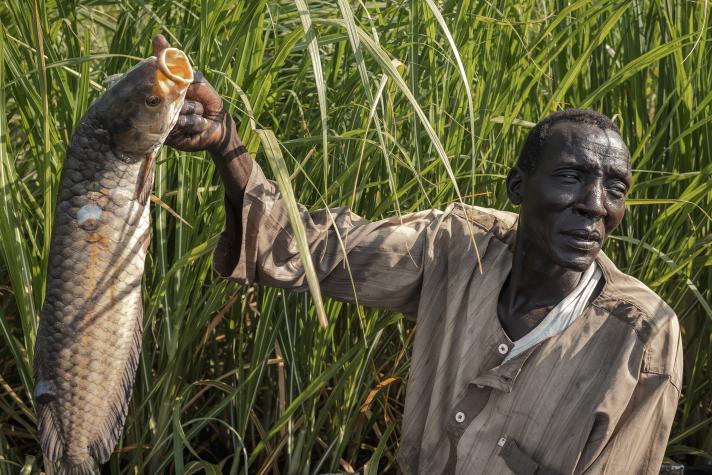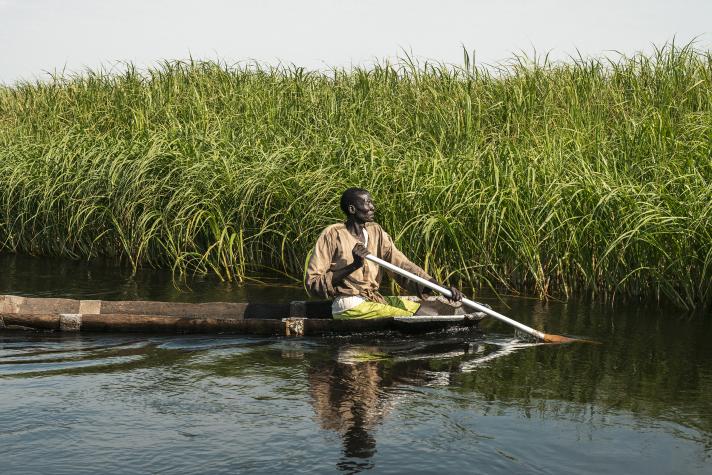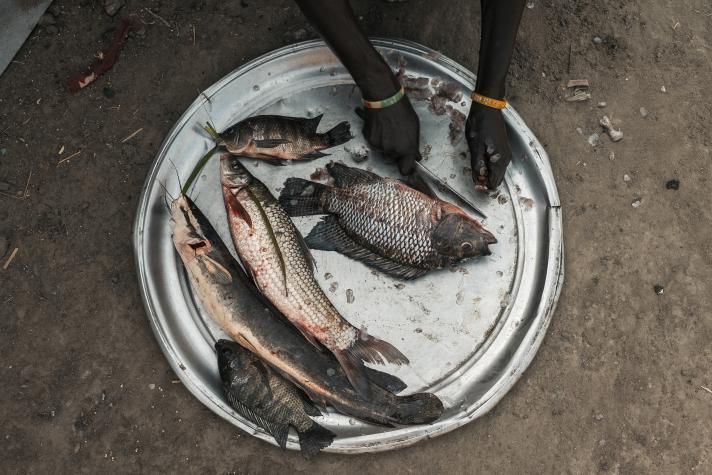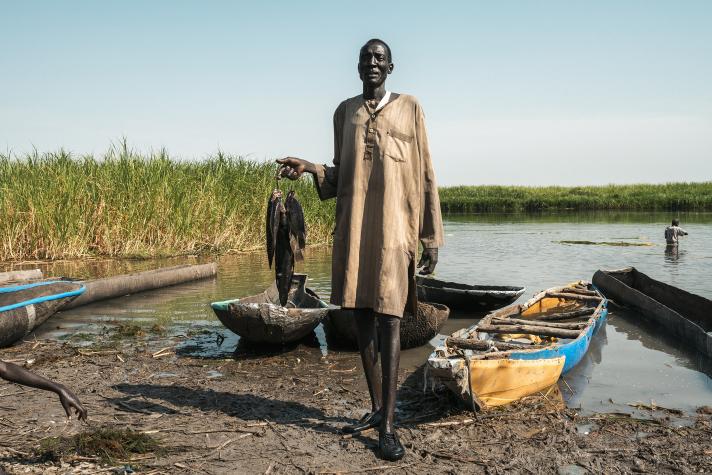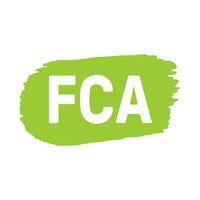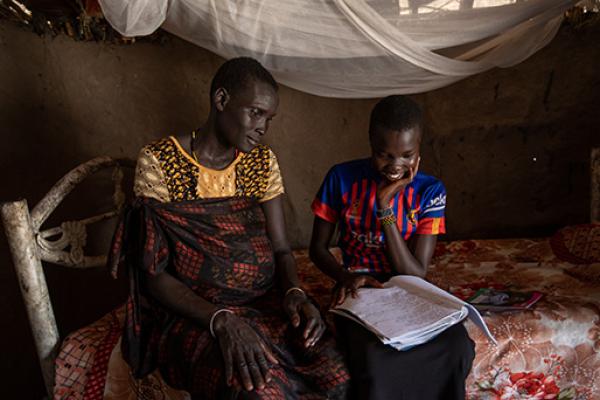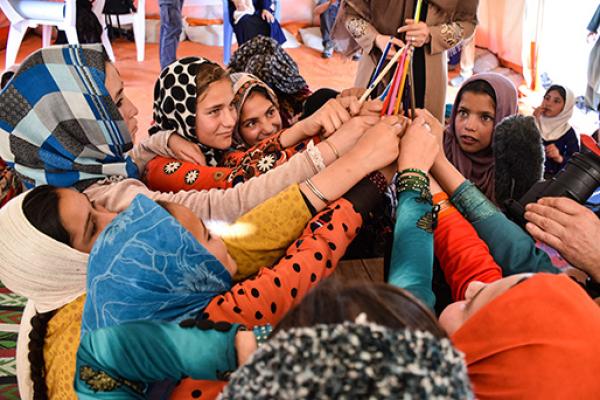In one of the world’s largest swamps, livelihoods must be constantly adapted to the realities on the ground. Through an EU-funded project, our partner Finn Church Aid is supporting fishermen to increase their catches and incomes.
In a canoe that looks very much like a hollowed-out tree trunk, a gangly man is kneeling in the bow and paddling. He moves smoothly along the shore, handling his long net. Occasionally, and with a small smile, he picks up a fish, pulling it out of the mesh and putting it behind him in the canoe. The fish is the family’s income and food.
Kuol Puoth Thiew says he has been fishing since he was a small child. He grew up in Old Fangak, a town in northern South Sudan, located in the incredible swamp landscape formed by the White Nile. The al-Sudd Swamp is one of the largest in the world and has often been affected by extreme weather conditions. During the rainy season, the whole area is flooded and during the dry season the temperature can rise to up to 45° Celsius.
Mr Thiew moved to the nearby town of New Fangak with his 2 wives and 9 children so that his children could go to school. Thiew himself stopped school after the 5th grade, but wants his children to have an opportunity to get an education.
“I wanted my children to have a better future than mine. That’s why we moved here,” says the soft-spoken Thiew.
The income he receives from fishing is largely used to pay his children’s school fees. The 9 children are aged between 3 and 25, and the 2 oldest have already moved away to the capital Juba to study at university – that’s more than a week’s boat journey away.
The younger children are able to attend school in New Fangak, where FCA runs schools funded by European Union Humanitarian Aid. Since their father is earning a living, they can focus on their education.
“My children going to school gives me hope for the future. That’s why I work hard to support them,” says Thiew.
Thiew leaves the riverbank at sunrise. Then he goes out with the canoe to scour the nets. In addition to fish, the waters are home to crocodiles, poisonous snakes and hippos. But Thiew still feels safe in his canoe.
“I’ve never been bitten. If a snake looks like it wants to attack, I just turn the canoe round and paddle away.”
If Thiew gets going early in the morning, he can catch 30 to 50 fish, usually perch-related Nile tilapia and mudfish, a particularly fast-growing fish that can weigh up to 7 kilos after just 1 month alive.
“I sell the fish for 500 to 1,000 South Sudanese pounds. So, on a good day I can earn 30,000 to 50,000 (around €20 to €30), which goes towards the family’s daily expenses and the children’s school fees,” says Thiew.
Fish that is not purchased is eaten by the family.
“We all like fish, it has a lot of protein.”
The family also has a small garden and some cattle he bought with the income from fishing. Previously, the family had more cattle, but they died during heavy flooding. The recurrent floods and droughts also make it difficult to grow crops, but for now the family still gets some food from the garden.
If there is fish left over, Thiew dries it to sell later. He learned this technique at a course organised by Finn Church Aid’s European Union Humanitarian Aid-funded project last year. During the course, the fishermen learnt the best ways of laying and placing nets. The fishermen also received new, durable nets.
“The nets are very good. They have been very useful.”
Thiew would like to increase his catch, but at the moment it is difficult. He does not own his own canoe but borrows one from a fellow fisherman. Most of the time he can borrow the canoe for free, but sometimes – when his colleague is short of money – he pays a small rent. But his dream is to buy his own canoe.
“Then I could go deeper into the swamp, where there are more fish. I could make 2 to 3 day trips and increase my catch and income,” says Thiew.

